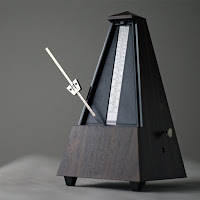WHEN PLAYING THE RIGHT NOTES IS NOT ENOUGH
Me, to a guy on the audition committee: "So, do you have any comments for me?"
Committee guy: "Yeah. Phil, you played just about a perfect audition today."
Me: "Thanks, but what was wrong?"
Committee guy: "You sounded like you were playing notes in time and space."
Me: (long pause, puzzlement, and dismay, followed by a miserable woe-is-me trip home).
Evidently, I checked the accuracy box pretty well in the audition but failed to generate any or enough musical excitement to satisfy the judges. Especially for a principal position, there is the expectation that someone will simply blow them away, not just with accuracy, but with dazzling musicality. And that was what the committee had been hoping to hear that dismal day.
So, lesson learned! My long-lost agenda was refreshed, albeit painfully:
- Get the notes without losing the drama!
- Be comfortable multitasking technique and expression!
We win when we play more than just notes in time and space. It's also much more fun!





